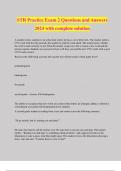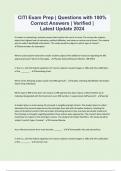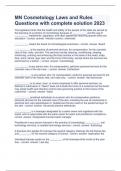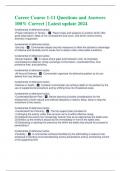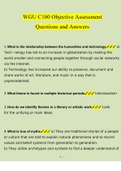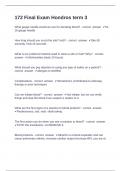Class notes
Overzicht belangrijke namen Interpreteren, onderzoeken en theorie vormen deel 2
- Course
- Institution
Dit document bevat een overzicht van de belangrijkste namen die aan bod komen in het vaak Interpreteren, onderzoeken en theorie vormen deel 2 gegeven door Prof. Joris Vlieghe. Het is een document die een grote tabel bevat --> namen in kleur met daaronder de belangrijkste puntjes/kernwoorden. Ik ...
[Show more]




